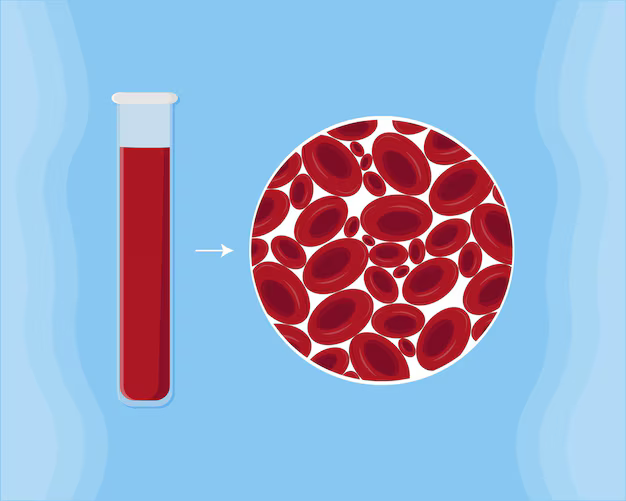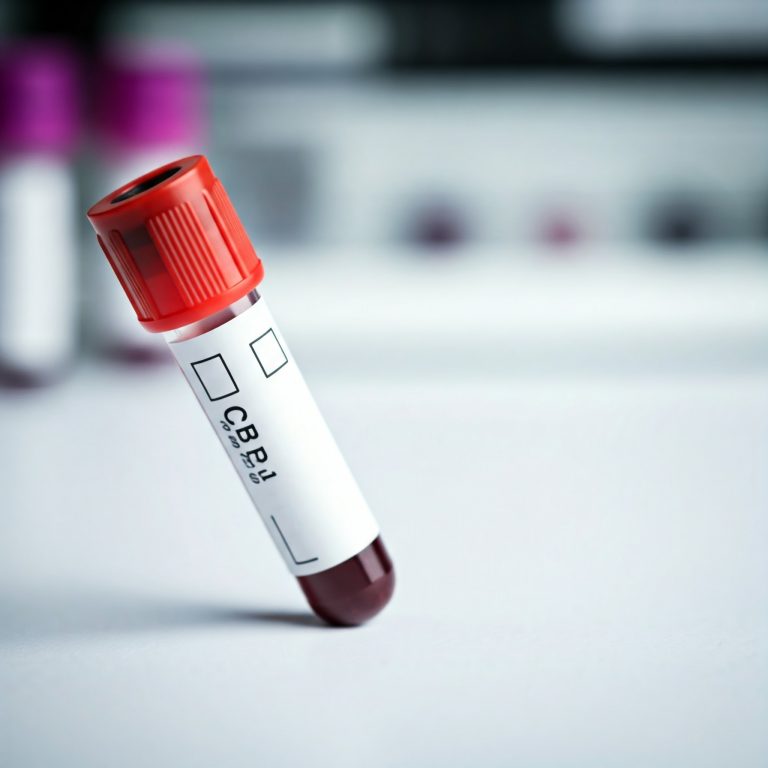MCH Blood Test: A Quick Guide to Mean Corpuscular Hemoglobin
October 01,2025

When you feel constantly tired or lightheaded, your doctor might order a CBC (Complete Blood Count). Buried inside that panel is a number you’ve probably never paid attention to, MCH. But don’t let the acronym fool you. This small number, short for Mean Corpuscular Hemoglobin, can give big clues about your health.
Think of hemoglobin as the oxygen delivery service in your blood. The MCH blood test tells you how much hemoglobin (and therefore oxygen) each red blood cell is carrying on average. When that number is off, either too high or too low, it often points to different types of anemia or nutritional deficiencies.
What Is MCH in a Blood Test?
So, what is MCH exactly? It stands for mean corpuscular hemoglobin, which measures the average amount of hemoglobin per red blood cell.
- Hemoglobin is the protein in red blood cells that carries oxygen to every cell in your body.
- MCH is reported as part of the RBC indices, alongside:
- MCV (Mean Corpuscular Volume): average size of red blood cells.
- MCHC (Mean Corpuscular Hemoglobin Concentration): concentration of hemoglobin per cell.
- RDW (Red Cell Distribution Width): variation in red cell size.
Together, these numbers help doctors figure out if you have anemia and more importantly, what kind.
Why Is the MCH Blood Test Important?
The MCH blood test is most useful when your doctor suspects anemia or other blood-related issues. Symptoms that might trigger this test include:
- Fatigue or weakness
- Frequent headaches
- Pale skin
- Shortness of breath
- Dizziness
Since MCH results work hand-in-hand with other CBC values, they give doctors a fuller picture of your red blood cell health.
MCH Normal Range: What Do the Numbers Mean?
Your results are reported in picograms (pg) per cell. Here’s the general mch normal range:
Low MCH (Hypochromic or Microcytic Anemia)
When your MCH is below the mch blood test normal range, it means your red blood cells don’t carry enough hemoglobin. Possible causes include:
- Iron deficiency anemia (common from blood loss or poor diet).
- Hemoglobin disorders like thalassemia or sickle cell anemia.
- Chronic inflammation from conditions like kidney or liver disease.
High MCH (Macrocytic Anemia)
If your MCH is above the normal range, your red blood cells are often larger than normal and packed with hemoglobin. Causes include:
- Vitamin B12 or folate deficiency.
- Thyroid disorders.
- Excessive alcohol use.
- Medication side effects, like chemotherapy.
How Is the MCH Blood Test Done?
The process is simple and quick:
- A healthcare professional draws blood from a vein in your arm.
- The sample goes to a lab, where it’s analyzed with an automated counter.
- Your mean corpuscular hemoglobin value shows up in the CBC report.
No special prep is required. If you’re also getting other tests, your doctor may ask you to fast beforehand.
Risks and What to Expect
Like any standard blood draw, risks are minimal. You might notice slight bruising, soreness, or a small sting when the needle goes in. Most people feel fine within minutes.
What Happens if MCH Levels Are Abnormal?
An abnormal MCH result isn’t always bad news. It’s just one clue in a bigger diagnostic puzzle.
- If MCH is low: Your provider may order iron studies or hemoglobin tests.
- If MCH is high: You may need vitamin B12, folate, or thyroid testing.
- If borderline: Doctors usually look at trends over time instead of one single result.
Bottom line: Don’t panic over one out-of-range number. The mch blood test normal range is just a guide, and your doctor will always interpret it alongside your medical history and other lab values.
Conclusion: Why MCH Matters
The MCH blood test may look like a small line item on your report, but it carries big weight in understanding your blood health. Staying within the mch normal range means your red blood cells are doing their job, carrying oxygen efficiently.
If you’ve been feeling unusually tired or your doctor suspects anemia, don’t be surprised if they mention MCH. It’s a small number with a big story behind it.
FAQs on MCH Blood Test
1. What is MCH in a blood test?
MCH stands for mean corpuscular hemoglobin. It measures the average hemoglobin content in each red blood cell.
2. What is the MCH normal range?
For adults, the mch normal range is usually 27–33 pg per cell.
3. What happens if my MCH is low?
Low MCH often points to iron deficiency anemia or blood disorders like thalassemia.
4. What happens if my MCH is high?
High MCH may indicate vitamin B12 or folate deficiency, thyroid issues, or alcohol-related effects.
5. Do I need to prepare for an MCH blood test?
No special prep is needed. But if your provider orders other tests at the same time, fasting may be required.
6. Is the MCH blood test risky?
Risks are minimal, just the usual minor discomfort or bruising from a blood draw.
References / Sources
- Mayo Clinic – Complete Blood Count (CBC)
- MedlinePlus – MCH Blood Test
- Cleveland Clinic – MCH Normal Range
- NIH / NCBI – Blood Test Procedure Safety
- American Society of Hematology – Understanding RBC Indices









Leave a Reply